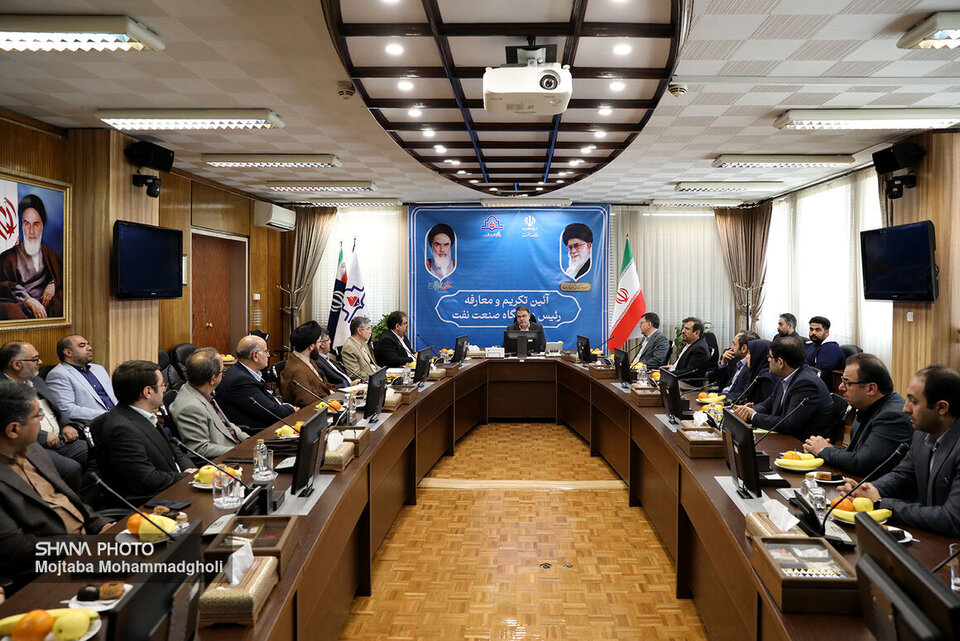Omid Shakari, speaking Monday at the farewell and inauguration ceremony for the university’s president, thanked former president Mohammad Chahardouli for his efforts and announced renewed confidence in the university to draft and implement a transformation plan.
He said the university must reclaim its rightful position and rank among the country’s top academic choices.
Shakari also expressed gratitude to Mohammadreza Khosravi-Nikou for accepting the role of acting president, adding that the university’s transformation plan should be developed and executed with input from faculty and coordination with the oil ministry.
Highlighting Khosravi-Nikou’s academic and executive background, Shakari noted his distinguished record in roles such as vice president for education, research, and support, as well as dean. His reputation, local roots, and positive engagement with the university and oil industry were also emphasized.
Shakari stressed the importance of elevating the university’s status, saying, “We must restore the university to its former prestige. Our goal should be for students to consider the Petroleum University of Technology alongside top institutions like Sharif, Tehran, and Amirkabir universities.”
Addressing the retirement of many faculty members in recent years, he said the university must quickly recruit new, specialized faculty to improve its academic standing.
Graduate programs aligned with oil industry needs
Saeid Tavakoli, CEO of the National Iranian Gas Company, emphasized the university’s importance in Iran’s academic and industrial structure, calling its retention under the oil ministry a valuable achievement.
Recalling his own student days and deliberate choice to attend the university, he stressed the need to preserve its credibility in Iran’s higher education system.
Tavakoli noted a gap between academic specialties and industry needs, pointing to fields like pipeline engineering, maintenance, asset management, and industrial AI as underrepresented. He urged the university to redesign its graduate programs to meet oil and gas industry demands.
He said many industry professionals pursue further education due to mismatched skills and organizational needs. Targeted graduate programs could help the university maintain its standing while better training specialized personnel.
Specialized programs for petrochemical industry needs
Hassan Abbaszadeh, CEO of the National Petrochemical Company, highlighted the university’s strategic advantage in proximity to industry, suggesting direct ties could foster specialized, practical fields that enhance branding and meet industry needs.
Citing successful models in China and elsewhere, he stressed training in focused areas like safety, maintenance, and chemical processes. He proposed short-term, industry-aligned courses and international programs to boost technical expertise.
Recognition of efforts to improve faculty status
Sedigheh Khazaei, deputy oil minister for human resources, thanked those involved in drafting faculty regulations, praising their commitment to the university’s academic standing.
She congratulated the new president, expressing hope that his industry experience and ministerial support would advance the university and address employment issues.
University has revival potential, must embrace new models
Khosravi-Nikou thanked the oil minister and deputy for their trust, calling the university a national asset whose standing had weakened in recent years.
He said revival requires rethinking traditional models, including scholarships and hiring. His strategic plan focuses on industry engagement through specialized courses and international collaborations.
He announced initiatives like drilling, cement, and high-performance computing labs, hoping for cooperation with the National Iranian Oil Company. AI tools in the oil industry and faculty recruitment were also highlighted as priorities.
Petroleum University’s rapid progress continues
Former president Chahardouli noted the university’s growth, citing rebuilt offices in Tehran, new workshops in Ahvaz and Abadan, and scientific equipment procurement. Collaboration with refineries and joint projects with faculty were also mentioned.
He highlighted international expansion, including student admissions in Basra, Iraq, and international branding efforts.
Chahardouli praised young talent’s role in the country’s future, noting collective decision-making, new scholarships, and efforts to maintain unity among staff.


Your Comment